
Baby Back Ribs vs St. Louis Spare Ribs Pork Ribs Shootout YouTube
The obvious difference between baby back and St Louis is the shape and the fat content. Louis-style spare ribs are from the belly section and they are larger and longer than the baby back ribs Also, St Louis ribs take well to bring cooked on extremely low and slow heat.
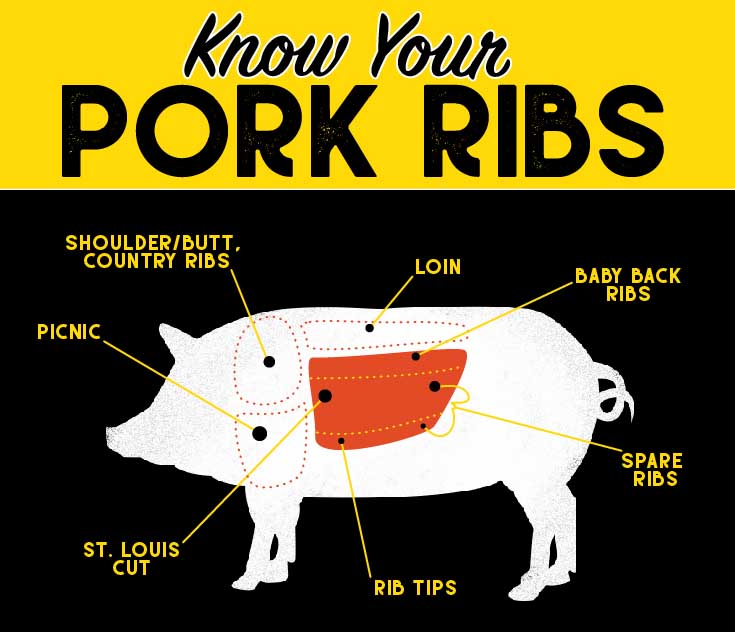
Types of Pork Ribs Know the Difference Between Spare Ribs & Baby Backs
This meat is very fatty and can be tough if cooked incorrectly. However if you cook it low and slow, the meat is fall-off-the bone tender. St Louis Ribs are between 5-6″ in length. They have more meat than baby back ribs between the bones where baby back ribs have more meat on top of the bone so it evens out in the end.
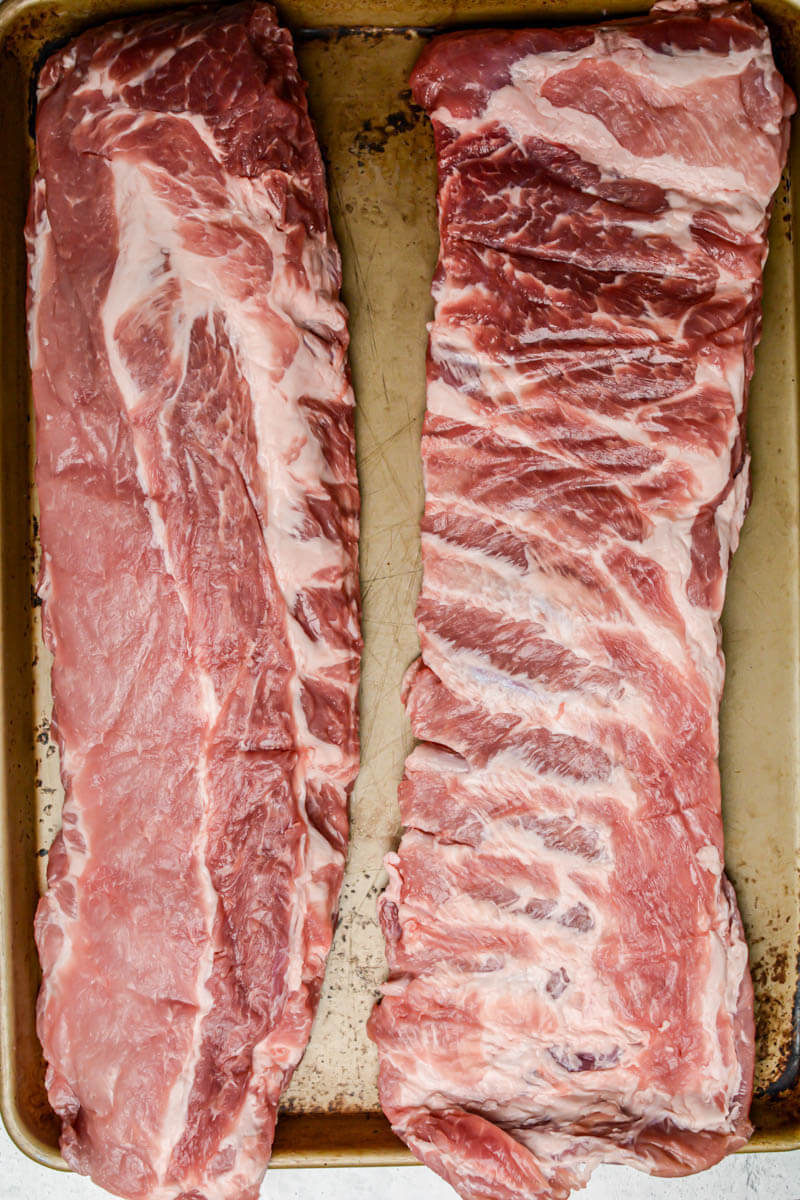
St Louis vs Baby Back Ribs Kitchen Laughter
As you've probably guessed, St. Louis ribs take longer to cook on account of their larger size. If you're cooking the ribs at 300 degrees Fahrenheit, St. Louis ribs will take about 2-1/2 to 3 hours to finish cooking. The same amount of baby back ribs, on the other hand, should be finished cooking in 1-1/2 to 2 hours.
Babyback Spareribs vs St. LewisStyle Spareribs Kitchen Encounters
Difference between baby back and St. Louis ribs. Let's get into the differences between these two types of meat so you can better decide which is best for dinner. Best cooked in… The really nice aspect of baby back and St. Louis ribs is that their cooking process is quite similar.

What’s the Difference Between Baby Back and St. Louis Ribs? TASTE
Spareribs. Spareribs are from the section closer to the belly. These are what's left when other parts of the belly meat are cut away for pork belly and cured pork belly products (think: bacon). They're larger and longer than baby backs, and they're also much fattier and are packed with flavor. They take very well to cooking that's extremely low.

How To BBQ Ribs In The Oven St. Louis Ribs vs Baby Back Ribs In The
Baby back ribs come from the upper rib area (closest to the spine) whereas St Louis ribs come from the belly area of the pig towards the breastbone. This difference in the area they are cut from then leads us to some of their other differences, such as: Meat-to-Bone Ratio: Baby back ribs have more meat per bone than St Louis ribs.

Pork Spare Ribs VS Baby Back Ribs Comparison YouTube
Baby back ribs: Baby back ribs are cut from around the loin. They're leaner than spareribs and typically have a higher price tag due to their popularity. Spareribs: Spareribs come from the belly area. They're larger than baby back ribs and take longer to cook, but they're very flavorful when cooked low and slow.
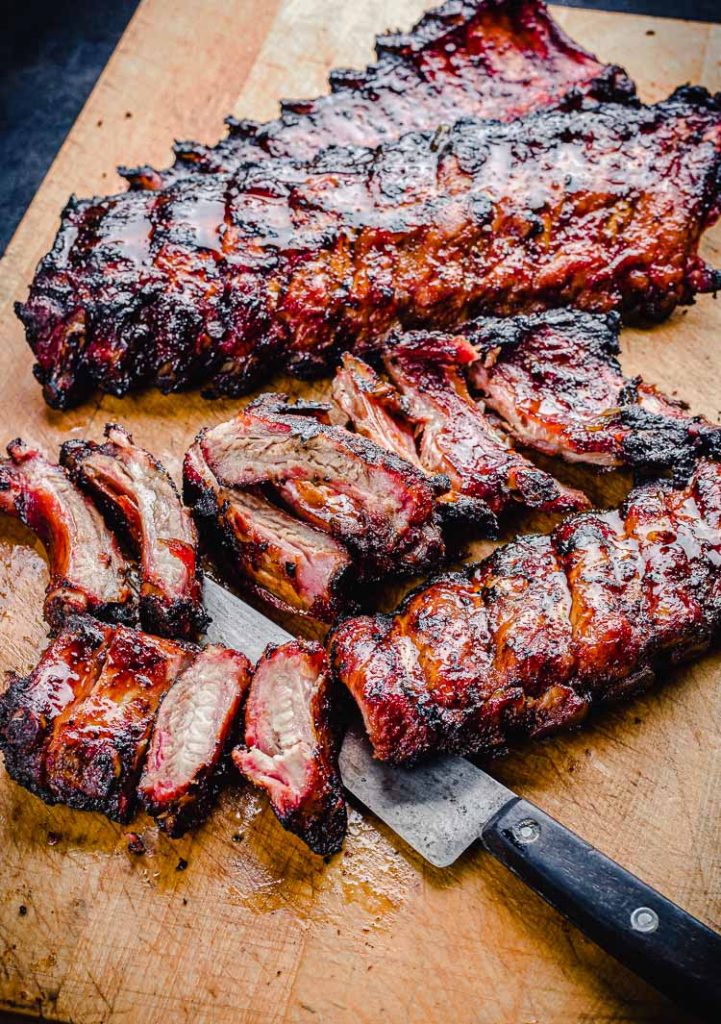
Half Slab Of Pork Ribs ubicaciondepersonas.cdmx.gob.mx
Baby back ribs are more tender and less meaty between baby back vs St. Louis ribs. It's because the cut comes from a place very near to the loin section of the pig. In fact, many cuts of baby back ribs will feature a half inch or so section of loin meat on the top the rack for a little bit of extra flavor and tenderness.
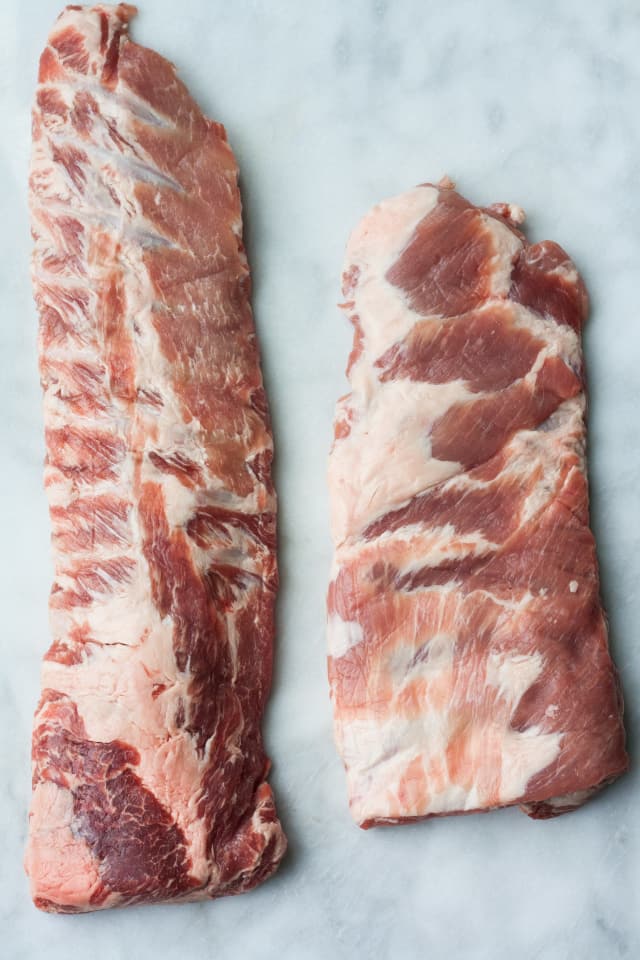
What's the Difference Between Baby Back Ribs and Spareribs? Kitchn
By comparison, baby back ribs have 230 calories, 18 grams of fat, and 21 grams of protein in a ¼ pound. Tip 5. Price of St. Louis-Style Ribs vs. Baby Back Ribs. Baby back ribs are more expensive per pound than spare ribs which reflects their meatiness. Because St. Louis-style ribs are well-trimmed spare ribs, you can expect them to be a little.

Spare Ribs Vs Baby Back Ribs Which Is Better Get More Anythink's
Baby Back Ribs are meatier than St. Louis Style Ribs and cook more quickly. Now that we know the differences between St. Louis and baby back ribs, let's take a look at how to cook them. For both types of ribs, you want to cook low and slow for optimal tenderness. Make sure the internal temperature reaches at least 145 F.

St. Louis Ribs Vs Baby Back Ribs Championship Catering
The heftier size of St. Louis-style means they take longer to cook. Keep in mind that baby backs may take one and a half to two hours, while St. Louis ribs could be cooking away for two and a half to three hours. About 300°F is the money spot for baking, though some recipes call for a temperature closer to 325°F.
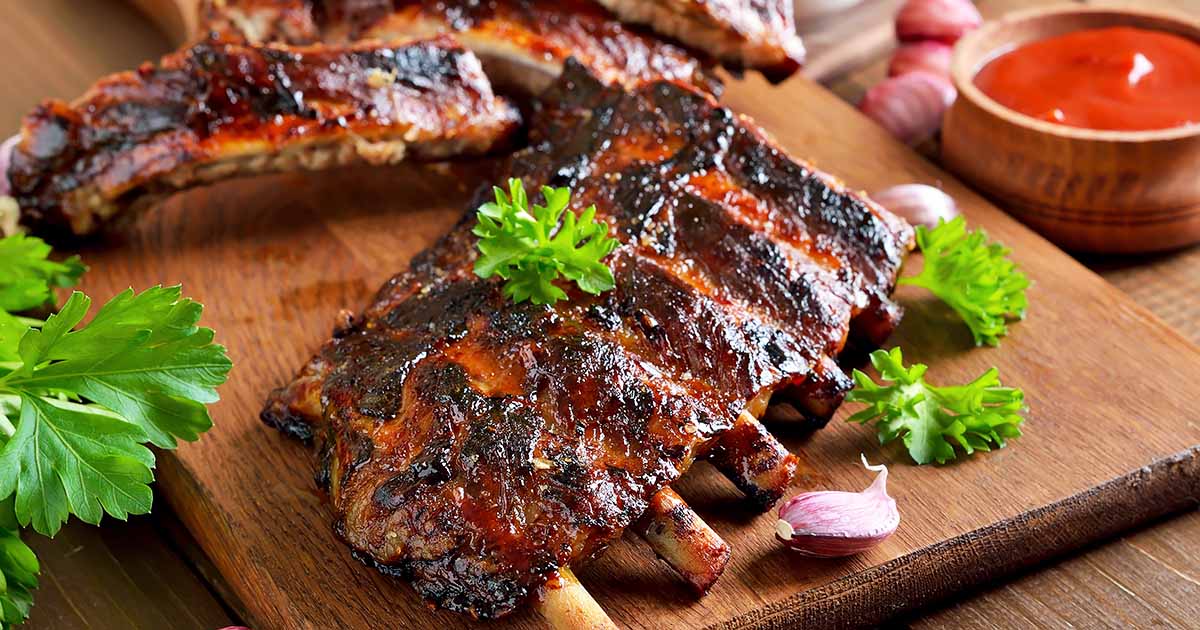
Baby Back, St. Louis, and Spareribs What’s the Difference? Foodal
You also might have eaten them because many restaurants favor baby back ribs over other cuts. The smaller size makes them plateable, and they cook more quickly than St. Louis ribs, too. Many people appreciate the tender texture, too — and they just look great with their signature curved bones.

St Louis Ribs Vs Baby Back Ribs What Is the Difference? YouTube
Baby Back Ribs. This type of rack might be what you first think of when someone mentions "ribs.". They are typically leaner than St. Louis-style ribs. Although they have less meat between the bones, there is more meat on top. Baby backs are served more often in restaurants than spareribs, and they are usually smaller in size than baby backs.
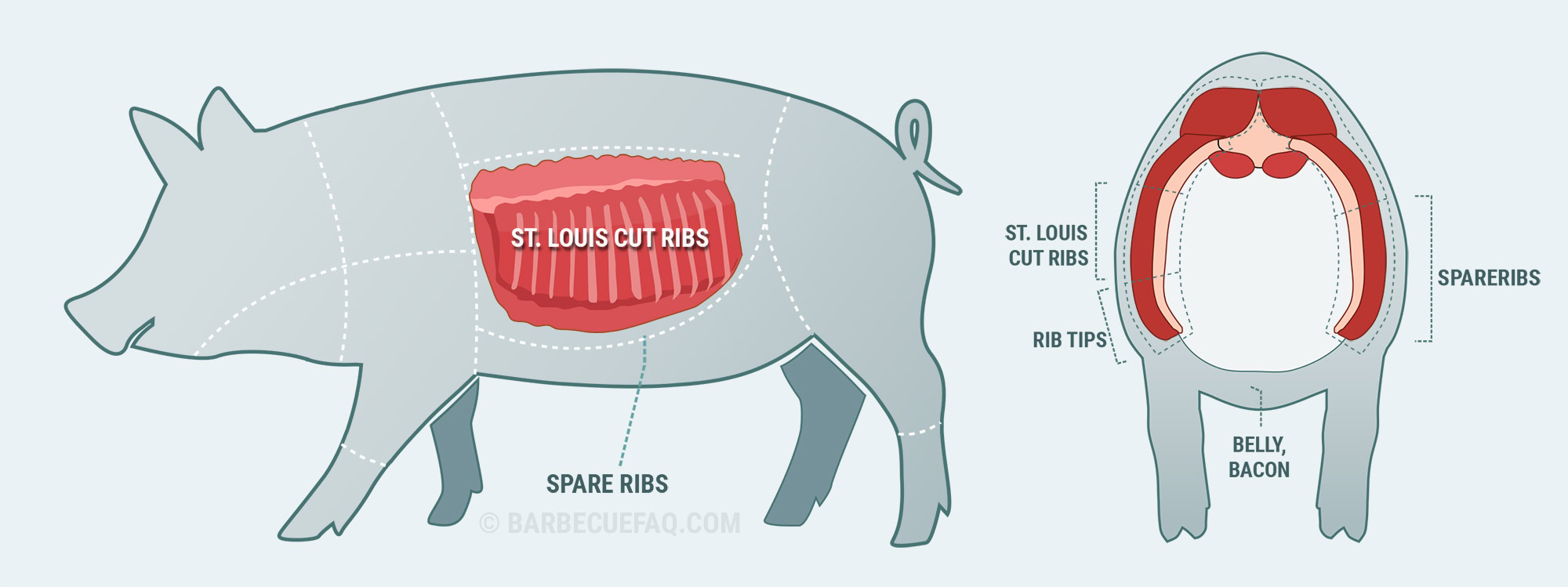
How Many Ribs in a Half Rack? Amount Explained Barbecue FAQ
In essence, the flavor differences between St. Louis ribs and back ribs are as follows. Baby back ribs are more tender than their counterparts. They are also less meaty than St Louis ribs. Baby back ribs are so tender because they are located in close proximity to the long and contain about 1/2-inch of loin meat near the top of each rack.

What are Baby Back Ribs vs St. Louis Ribs? Tender Belly
Baby back ribs cook within a shorter time than the St. Louis ribs as they are leaner, have slimmer bones, and fewer fats. It might take about 3 hours to cook the baby back ribs completely . . It could take about 6 hours to cook the St. Louis ribs. Better for feeding fewer people due to their size .

Baby Back vs St. Louis Ribs What's the Difference? Own The Grill
Baby backs are smaller, about 3 to 6 inches, and may be thicker than St Louis-style ribs, making them good finger food. This cut usually weighs a little more than half of what St Louis ribs do - 1.5 to 2 pounds. 3. Appearance. St Louis ribs usually have a lot of fat and visible connective tissue.